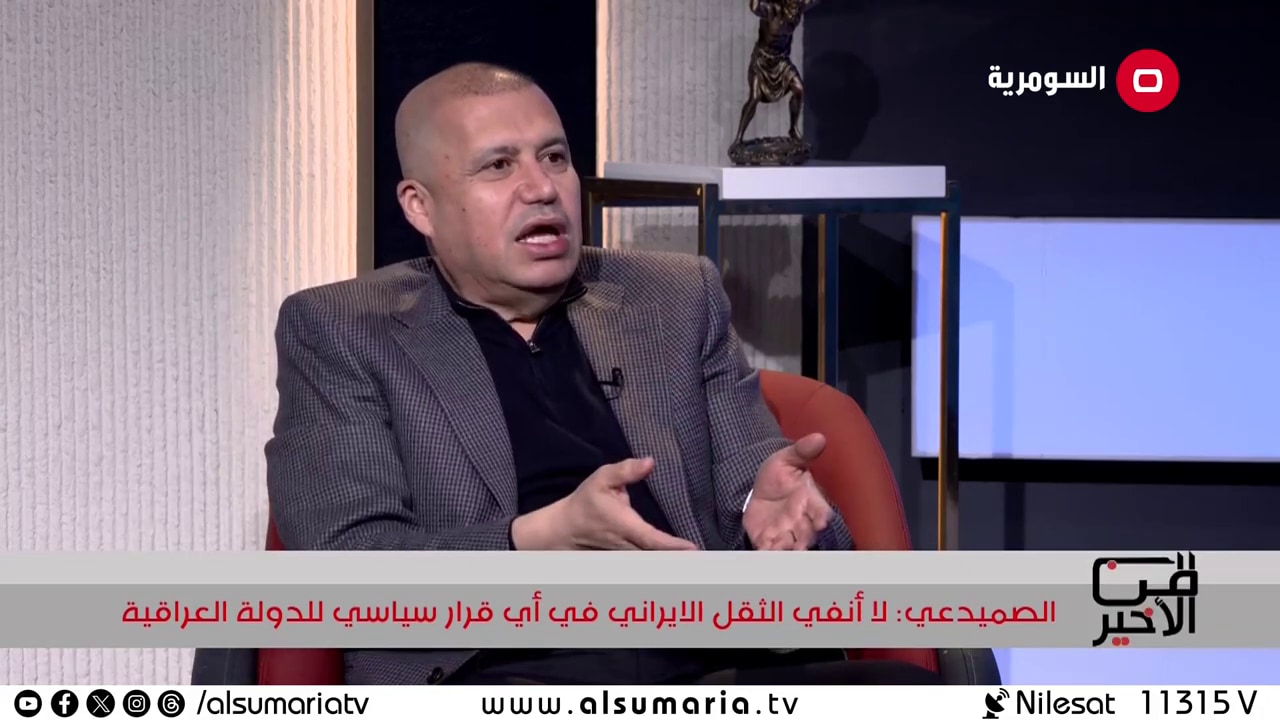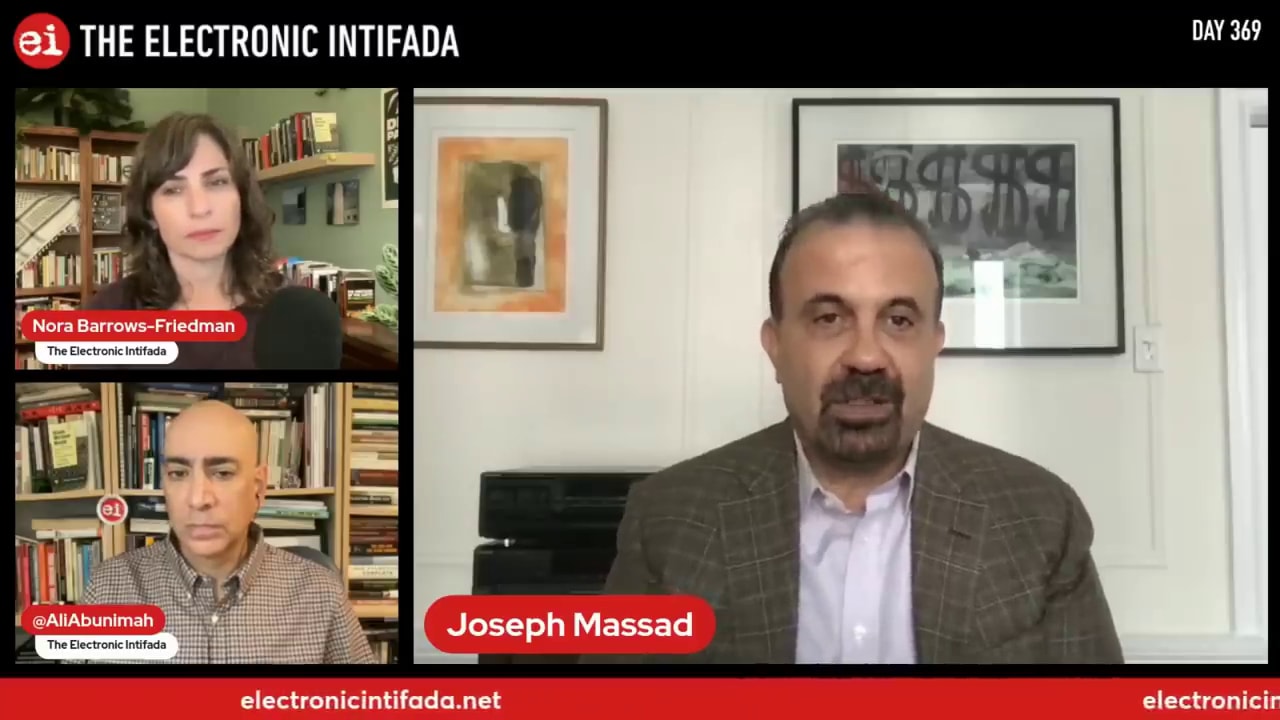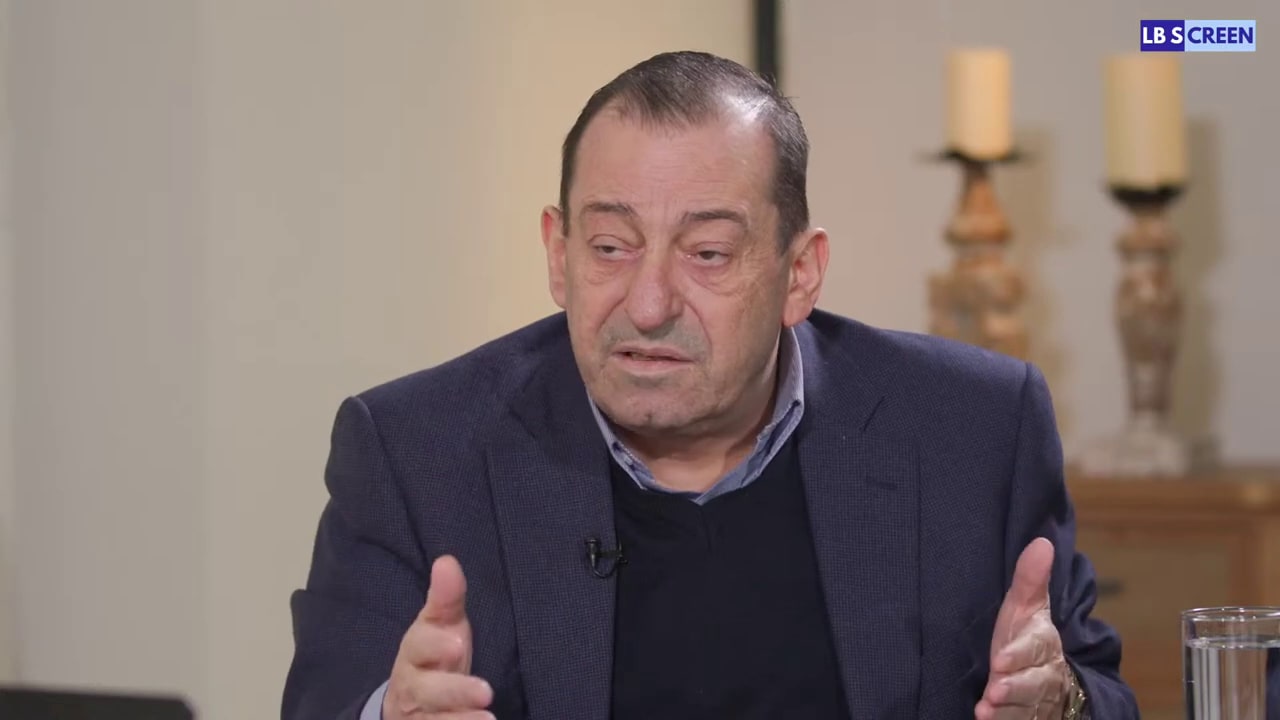
Issam Al-Zoba'i aka Abu Abd Al-Haq Al-Iraqi, the 26-year-old commander of an Islamic State (ISIS) "strike force" in Al-Furat Province, was interviewed on Al-Arabiya TV. Al-Zoba'i, who was captured along with several other ISIS commanders in Syria last May, explained that ISIS lost Mosul and other cities to the Iraqi army because of "weak" commanders who had been appointed by Abu Bakr Al-Baghdadi, and because of the "oppression" that the Iraqi people suffered. He added that there were frequent disputes among the ISIS leadership, and that people would not challenge Abu Bakr Al-Baghdadi's decisions because he was known to be "uncompromising in his positions." Al-Zoba'i said that the mass killing of civilians had been sanctioned by the Caliph's office, over which he said the local security departments had no control. Regarding the use of human shields in Mosul, Al-Zoba'i said that one of Al-Baghdadi's mistakes was prohibiting anybody from leaving Mosul during the battles, including the families of ISIS members. He added that there was a major dispute within ISIS ranks concerning the appointment of non-Iraqi commanders to positions within Iraq. The interview aired on September 28, 2018.
Following are excerpts:
Issam Al-Zoba'i (In ISIS Video): "This is a message from the soldiers of the rightly guided caliphate in the steadfast Al-Furat Province, and we write it with the ink of blood.
[...]
"This is a ferocious war, so prepare your souls, roll up your sleeves, and cut off heads."
[...]
Issam Al-Zoba'i (In Interview): "The governor of the Al-Furat Province, and most of the [emirs] of the cities in the province had been emirs in the desert before the establishment [of the Caliphate]. So they were always thinking that the Islamic State would not be able to maintain its control of the cities. Therefore, they always labored to build bases in the desert, preparing an alternative for when the downfall [of ISIS] would come. They put a lot of effort into those desert bases."
[...]
Interviewer: "Did you believe that you could beat [the Iraqi army] in those battles?"
Issam Al-Zoba'i: "We had the necessary forces. Our forces were more or less equal to those of the Iraqi army, but our commanders at the time were not suitable for the job. This is why we lost the battles."
Interviewer: "Who do you mean?"
Issam Al-Zoba'i: "The commanders of the Islamic State."
Interviewer: "Who was the commander?"
Issam Al-Zoba'i: "Various people appointed by Abu Bakr Al-Baghdadi. Whenever a battle was launched, whether [by ISIS] or by the Iraqi army, Abu Bakr Al-Baghdadi would appoint a deputy, who he would send to lead that specific battle. The individuals he would send were very weak. They were the reason we lost those battles."
Interview: "Give us the most notable names."
Issam Al-Zoba'i: "Abu Ayman Al-Tunisi, Abu Tareq Al-Askari... They are well-known."
Interviewer: "They were the commanders of the battles of Mosul?"
Issam Al-Zoba'i: "From the outside. In Mosul itself, the commanders were Abu Yahya Al-Iraqi and Abu Saleh, but from outside the [Iraqi army's] siege, the commanders were Abu Ayman Al-Tunisi, also known as Abu Ayman Al-Rifi, as well as Abu Tareq [Al-Askari], Hajj Shaker... They were the..."
Interviewer: "What was the job of the strike force that you commanded? Who did it consist of? How many members did it have?"
Issam Al-Zoba'i: "It was named the Fateh Division and its goal was to take over the Mosul Road. I founded it. I came up with the idea of establishing a strike force for emergencies. The [Iraqi] army was always attacking, and usually the [ISIS] fighters were not ready for combat. There were always fighters who said that they were there just for ribat... This was a problem in many of the battles, so I came up with this idea of a strike force, whose soldiers would be qualified in all respects and always combat-ready. I received official permission for this, and I began to select suitable soldiers. This is how I built the strike force.
[...]
"I had been a prisoner in the Iraqi prisons, and upon my release, I took my position [in ISIS]. It's not that I carried out an operation... As soon as I got out of prison, I became an emir."
[...]
Interviewer: "Why do you think ISIS lost the cities it had held?"
Issam Al-Zoba'i: "I've already pointed this out. First, there were unqualified emirs. Second, the public was subject to oppression towards the end. These were the main reasons."
[...]
Interviewer: "Were there disputes among the top ISIS leaders during the Iraqi army's military campaign?"
Issam Al-Zoba'i: "Many. There were major disputes among ISIS leaders concerning the takeover of the Mosul Road. There was a well-known dispute between Abu Ayman Al-Tunisi and Abdallah Al-Tajiki, which led to the imprisonment of Abdallah Al-Tajiki, who was also removed from his position. Many commanders were harmed due to the disputes over the battles."
Interviewer: "Did you have a problem following the orders of the religious emirs, or did the military emirs have more control than them in times of battle?"
Issam Al-Zoba'i: "Like I said, the focus was on the religious emirs, but towards the end, the military voice became louder than the religious voice. This was another reason that the battles were lost."
Interviewer: "Did you have an opinion about the killing of civilians from the Abu Nimr Tribe, or in Al-Qa'im, Rawa, Anah, or elsewhere? Or were you content with this?"
Issam Al-Zoba'i: "The killing of those people you've mentioned... Every province had a security department. I would meet with the religious [emir] of the security department. All those killers were sent by the Caliph's office. The [local] security department had no control over the Caliph's office. They would come and arrest people and the provincial security department wouldn't even know about it."
[...]
Interviewer: "What reservations did you personally have? Were you opposed to the appointment of Arab or foreign commanders to areas that you are familiar with... You yourself are from Al-Anbar and you know the area well. What did you do when an Arab or non-Arab emir was put in charge of you?"
Issam Al-Zoba'i: "This was a major dispute in the Islamic State, especially since the Iraqis had their voice heard... The muhajireen did not have control over the Iraqis, whether in Rawa, Anah, Haditha, Heet, or even in Mosul. The place where the muhajireen were in control was Syria. There were many problems with the muhajireen in Syria.
[...]
"[ISIS] is now focusing on [guerilla] operations by cells, because they have no popular support in Iraq, to tell you the truth."
Interviewer: "Why is there no popular support? Because you took control of areas, and started killing the people living there. You burned the people of Mosul and killed over 500 members of the Abu Nimr Tribe. You tortured many innocent people. Do you think that if you had behaved properly, millions of Sunnis from the provinces under your control would still have fled to other areas?"
Issam Al-Zoba'i: "I told you at the beginning that the reason ISIS lost the territory is the injustice ISIS inflicted. We admit this."
[...]
Interviewer: "What's your opinion of Abu Bakr Al-Baghdadi?"
Issam Al-Zoba'i: "I have a negative opinion of him."
Interviewer: "How come? You pledged allegiance to him and joined ISIS..."
Issam Al-Zoba'i: "He is the Emir of the Islamic State. Even if I have a negative opinion of him, this does not mean that I'd rebel against him."
[...]
Interviewer: "What do you think of the media? If you ever caught a journalist like me..."
Issam Al-Zoba'i: "You were famous in the Islamic State. Your 'Industry of Death' program was famous. You don't want to know the answer to that."
Interviewer: "I want to hear it. What would you have done?"
Issam Al-Zoba'i: "You know the answer."
Interviewer: "I want to hear it from you."
Issam Al-Zoba'i: "Kill you. What else?"
Interviewer: "Why would you kill me?"
Issam Al-Zoba'i: "That's the policy of the Islamic State."
Interviewer: "So you think I am an apostate?"
Issam Al-Zoba'i: "Of course. Not only that, you are the mouthpiece of a network hostile to the Islamic State."
[...]
Interviewer: "Al-Baghdadi's decisions played a role in the destruction of the cities..."
Issam Al-Zoba'i: "Absolutely. Al-Baghdadi is known to be uncompromising in his positions. None of the leaders around him dares to say 'no.' They do as he says."
Interviewer: "Did you discuss these matters just amongst yourselves, or did you share it with higher ranks? Were you afraid?"
Issam Al-Zoba'i: "No, we discussed these matters amongst ourselves, but when Al-Baghdadi's appointed deputy would come to us he would settle it and say: 'Just do what Al-Baghdadi said.'"
Interviewer: "Did you support keeping the civilians in combat zones as human shields, or were you in favor of letting them leave?"
Issam Al-Zoba'i: "This was one of Abu Bakr Al-Baghdadi's mistakes. We saw what happened in the battles of Fallujah. The families constituted a heavy burden on the fighters of the Islamic State, and the same is true of the Ramadi area. All of us believed that the families would be evacuated from Mosul. Hajj Abd Al-Nasser said that there were 64,000 families of ISIS members and supporters. We expected that they would be evacuated, and were surprised that the roads were blocked by the Caliphate's office, and nobody was allowed to leave Mosul."
Interviewer: "They were used as human shields..."
Issam Al-Zoba'i: "Nobody was allowed to leave, whether it was a family of an ISIS commander or just any Muslim family. It was a battle for life or death."














